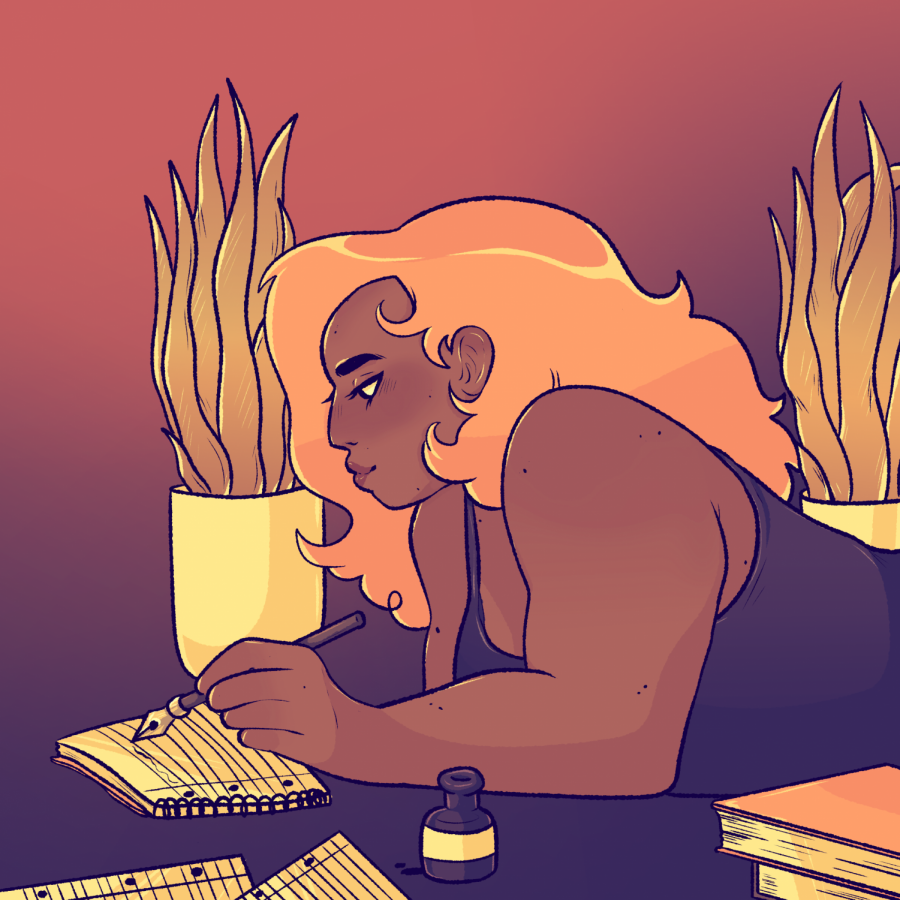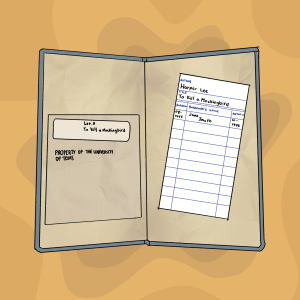Three UT student-poets reflect on their different forms of art, importance of poetry for National Poetry Month
April 15, 2021
Editor’s Note: This article first appeared in the April 13 issue of The Daily Texan.
In lowercase, italic letters, Zaynab Noormohamed delivers the punchline to a bite of brutal honesty. For her, writing poetry is a function of living.
“I think poetry is another form of a blood vessel or lifeline into my body,” said Noormohamed, an international and global studies sophomore. “Writing has allowed me to clear my mind … and come to terms with myself.”
Each April, the poetry community hosts competitions, daily prompts and writing challenges to celebrate National Poetry Month. Some student poets have used this time to reflect on past work and their vision for the future.
“I turn 20 this April, and I want to start writing a poem every day,” Noormohamed said. “There’s a lot of growing to do between the ages of 20 and 21. I want to see how I change as a writer and a person.”
Sharing her work under the Instagram handle @zaynabeefeels, Noormohamed recently wrote poems about the Black Lives Matter movement, a letter to an eating disorder and reflections on womanhood.
Elsewhere on Instagram, sociology freshman Leah Piñon superimposes her poetry on a background of movie stills, line art and album covers. From cutting up her grandmother’s old Vogue magazines to rearranging typewritten letters, Piñon said she enjoys mixing her original poetry with other media.
“There’s a rawness and vulnerability to making collage pieces because you’re putting art into a visual form that’s not just words,” Piñon said. “It’s all the things I never had the courage to say.”
Piñon’s poetry takes the form of ransom notes, error messages and text conversations. During high school, she decided to share her work on Instagram at the handle @neptunespoet.
“It took me a while to make an account for it because I felt that writing was very intimate,” Piñon said. “Now, it’s my only social media account. I’ve established myself through my poetry because it’s the most accurate representation of who I am.”
For public health junior Paranjaya Pokharel, childhood nostalgia continues to inform her work. Paired with her 35 millimeter photography are freeform meditations on family, longing and personal growth.
“People have told me that my writing feels familiar to them,” Pokharel said. “My writing seems very specific to me and my mind, but maybe those emotions come through.”
Pokharel posts her work on Instagram under the handle @parxnjaya. Because poetry was a staple of her upbringing, she said sharing her own work has always felt like a natural process.
“My dad is a poet who writes Nepali poetry, and sometimes he would share it with me,” Pokharel said. “Seeing him use that as an outlet, it made me think that it was also okay for me to do that.”
In her poetry, Pokharel prefers to evoke a series of sensations, rather than following a concise plotline. She said she sometimes struggled with the connotations of the word poet to describe herself.
“I feel like an imposter saying that,” Pokharel said. “(But) when I heard the word poet, I never thought of it as a pretentious, far-off thing … It’s just an extension of how I express myself.”












